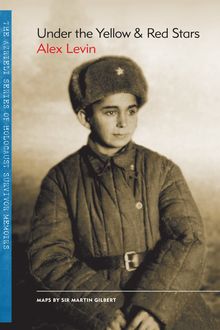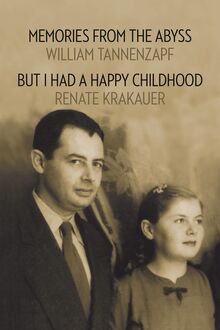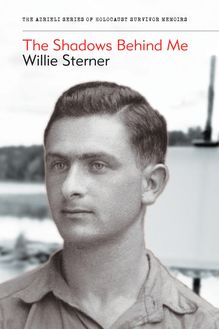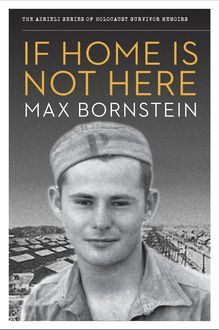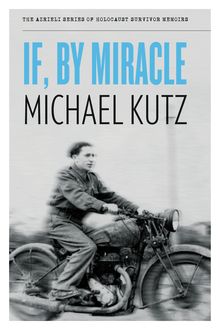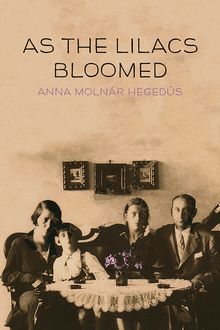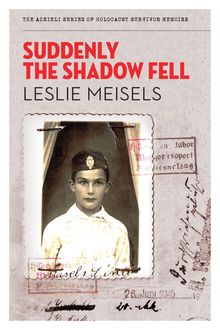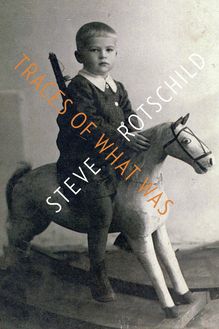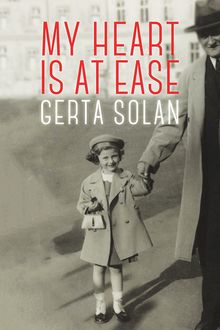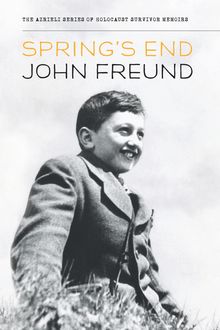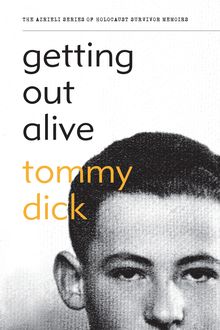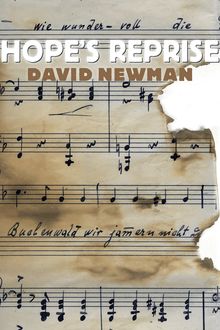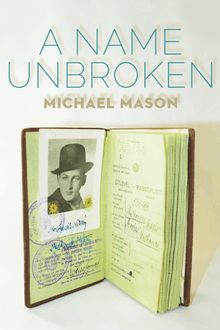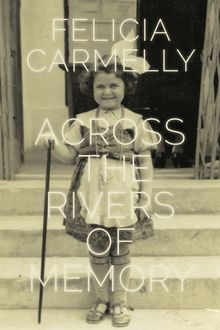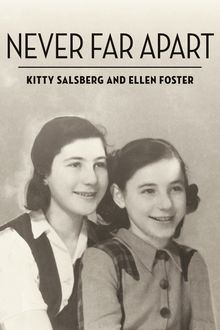-
 Univers
Univers
-
 Ebooks
Ebooks
-
 Livres audio
Livres audio
-
 Presse
Presse
-
 Podcasts
Podcasts
-
 BD
BD
-
 Documents
Documents
-
- Cours
- Révisions
- Ressources pédagogiques
- Sciences de l’éducation
- Manuels scolaires
- Langues
- Travaux de classe
- Annales de BEP
- Etudes supérieures
- Maternelle et primaire
- Fiches de lecture
- Orientation scolaire
- Méthodologie
- Corrigés de devoir
- Annales d’examens et concours
- Annales du bac
- Annales du brevet
- Rapports de stage
La lecture à portée de main
Vous pourrez modifier la taille du texte de cet ouvrage
Découvre YouScribe en t'inscrivant gratuitement
Je m'inscrisDécouvre YouScribe en t'inscrivant gratuitement
Je m'inscrisEn savoir plus
Vous pourrez modifier la taille du texte de cet ouvrage
En savoir plus

Description
Sujets
Informations
| Publié par | Azrieli Foundation |
| Date de parution | 01 septembre 2015 |
| Nombre de lectures | 0 |
| EAN13 | 9781897470985 |
| Langue | English |
Informations légales : prix de location à la page 0,0300€. Cette information est donnée uniquement à titre indicatif conformément à la législation en vigueur.
Extrait
Never Far Apart
Kitty Salsberg and Ellen Foster
The Azrieli Series of Holocaust Survivor Memoirs
Naomi Azrieli, Publisher
Jody Spiegel, Program Director
Arielle Berger, Managing Editor
Elizabeth Lasserre, Senior Editor, French-Language Editions
Farla Klaiman, Editor
Elin Beaumont, Senior Educational Outreach and Events Coordinator
Catherine Person, Educational Outreach and Events Coordinator, Quebec and French Canada
Marc-Olivier Cloutier, Educational Outreach and Events Assistant, Quebec and French Canada
Tim MacKay, Digital Platform Manager
Elizabeth Banks, Digital Asset and Archive Curator
Susan Roitman, Office Manager (Toronto)
Mary Mellas, Executive Assistant and Human Resources (Montreal)
Mark Goldstein, Art Director
François Blanc, Cartographer
Bruno Paradis, Layout, French-language editions
Contents
The Azrieli Series of Holocaust Survivor Memoirs
Series Preface: In their own words...
About the Glossary
Introduction
Map
Dedication
Kati: An Adventure Begins
Ilonka: A Younger Sister’s Memories
Kati: A Lonely Life Apart
Ilonka: In the Dark
Kati: In the Ghetto
Ilonka: Poems
Kati: So Many Miracles
Ilonka: Orphans
Kati: Regaining Our Self-respect
Ilonka: Into the Unknown
Kati: Not So Fast
Ilonka: New Priorities
Kati: Arrival to a New Life
Ilonka: Broken Promises
Kitty: Lucky Accident
Ellen: Out in the World
Kitty: Most Favourite Place
Ellen: My Inner Compass
Kitty: Destiny Fulfilled
Glossary
Photographs
Copyright
About the Azrieli Foundation
Also Available
Series Preface: In their own words...
In telling these stories, the writers have liberated themselves. For so many years we did not speak about it, even when we became free people living in a free society. Now, when at last we are writing about what happened to us in this dark period of history, knowing that our stories will be read and live on, it is possible for us to feel truly free. These unique historical documents put a face on what was lost, and allow readers to grasp the enormity of what happened to six million Jews – one story at a time.
David J. Azrieli , C.M., C.Q., M.Arch
Holocaust survivor and founder, The Azrieli Foundation
Since the end of World War II , over 30,000 Jewish Holocaust survivors have immigrated to Canada. Who they are, where they came from, what they experienced and how they built new lives for themselves and their families are important parts of our Canadian heritage. The Azrieli Foundation’s Holocaust Survivor Memoirs Program was established to preserve and share the memoirs written by those who survived the twentieth-century Nazi genocide of the Jews of Europe and later made their way to Canada. The program is guided by the conviction that each survivor of the Holocaust has a remarkable story to tell, and that such stories play an important role in education about tolerance and diversity.
Millions of individual stories are lost to us forever. By preserving the stories written by survivors and making them widely available to a broad audience, the Azrieli Foundation’s Holocaust Survivor Memoirs Program seeks to sustain the memory of all those who perished at the hands of hatred, abetted by indifference and apathy. The personal accounts of those who survived against all odds are as different as the people who wrote them, but all demonstrate the courage, strength, wit and luck that it took to prevail and survive in such terrible adversity. The memoirs are also moving tributes to people – strangers and friends – who risked their lives to help others, and who, through acts of kindness and decency in the darkest of moments, frequently helped the persecuted maintain faith in humanity and courage to endure. These accounts offer inspiration to all, as does the survivors’ desire to share their experiences so that new generations can learn from them.
The Holocaust Survivor Memoirs Program collects, archives and publishes these distinctive records and the print editions are available free of charge to educational institutions and Holocaust-education programs across Canada. They are also available for sale to the general public at bookstores. All revenues to the Azrieli Foundation from the sales of the Azrieli Series of Holocaust Survivor Memoirs go toward the publishing and educational work of the memoirs program.
•
The Azrieli Foundation would like to express appreciation to the following people for their invaluable efforts in producing this book: Doris Bergen, Sherry Dodson (Maracle Press), Joan Eadie, Allegra Robinson, Beverly Solotov, and Margie Wolfe and Emma Rodgers of Second Story Press.
About the Glossary
The following memoir contains a number of terms, concepts and historical references that may be unfamiliar to the reader. For information on major organizations; significant historical events and people; geographical locations; religious and cultural terms; and foreign-language words and expressions that will help give context and background to the events described in the text, please see the Glossary .
Introduction
“I am like the Joshua Tree that grows in the Mojave Desert. It stands firmly in the ground, through hot days and cold nights, surviving the harsh dryness with hardly a drop of water and withstanding the cruel winds that batter it. No matter what, it lives on, grounded.”
Stretched across California’s Colorado and Mojave deserts, the Joshua Tree National Park is home to hundreds of diverse plant and animal species. At nearly 800,000 acres or some 3,300 square kilometres, the hostile expanse is defined by unforgiving landscapes and an unpredictable climate. The park’s namesake Joshua trees are a significant feature of the Mojave Desert’s ecosystem.
Like the tree, Ilonka Mozes-Nagy perceived her life as starting in a desert, and her formative years as having taken place in an unforgiving climate. Both she and her older sister, Kati, were raised under volatile conditions in Budapest; though shaken and scarred by Nazism, they withstood both the wartime traumas and the challenges of life in post-war Canada. Like the Joshua tree, their roots remained firmly planted.
Never Far Apart is a poetic and reflexive remembrance of two sisters who survived the Holocaust. Honest and unapologetic, the sisters’ eyewitness accounts seamlessly intertwine as a cohesive collection of memories. The volume is distinctive among survivor memoirs stylistically and in terms of the nuanced portrait it paints of Jewish Budapest, life under Nazism and the struggles of post-war rehabilitation. The two narratives – recorded separately and thousands of miles apart by Kati and Ilonka Mozes-Nagy, now known by the Anglicized names Kitty Salsberg and Ellen Foster – complement each other with juxtaposing views on a series of shared experiences. Speaking to the complexity of families and their dynamics, the memoir explores how relationships – between husband and wife, parent and child, and between siblings – were affected by the Holocaust, and how family and the notion of home shifted in the shadow of liberation.
By a circumstance of fate, I was born a Jew in Canada of the 1980s, and raised in a society that celebrated democracy, multiculturalism, rights and freedoms for all of its citizens. A bookish youth, my personal first encounters with the Holocaust came early and in the form of heroic protagonists in young adult novels. These accounts of Jewish youth, courageous beyond their years, had a transformative effect. Yet I had difficulty comprehending such stories; Nazi Germany seemed like an alternate universe light years away from my comfortable Toronto upbringing. It was a planet populated by insane dictators, sadistic militants and brainwashed followers. How could members of the human race – my human race – believe such hateful ideology? Even less explained, how could anyone, let alone a child, survive these expressions of hate?
The history that I later discovered proved far more shocking. As my intellectual curiosity developed, the mythologized National Socialism and “war on the Jews” that once leapt off the pages of skillfully written novels grew clearer. I became aware that Holocaust survivors existed within my own community. Stories I once consumed through a fictional lens entered my lexicon in another form: the survivor memoir. These memoirs contributed to my overall knowledge of the events of the Holocaust. Unlike other sources, often dry and detached, and shared through the lens of the perpetrator, memoirs provide complex and individual perspectives on trauma, survival and ethical decision-making in moments of crisis. Told from the perspective of two child survivors, war orphans to Canada, Never Far Apart is no exception.
•
While Kati and Ilonka were not born until the 1930s, international events triggered by the World War I era set the stage for the difficulties they would soon face. The aftermath of the war signalled a sea of change on the European stage. Mass upheaval, a refugee crisis and harsh treaties imposed on the defeated by the triumphant Allied powers culminated in the re-making of national borders. The Treaty of Versailles (June 28, 1919) left a devastating and significant mark on Germany; impossible reparation payment demands, the forced acceptance of the war guilt clause, the dismantling of the army and territorial losses led to volatile conditions. Popular support for nationalist
-
 Univers
Univers
-
 Ebooks
Ebooks
-
 Livres audio
Livres audio
-
 Presse
Presse
-
 Podcasts
Podcasts
-
 BD
BD
-
 Documents
Documents
-
Jeunesse
-
Littérature
-
Ressources professionnelles
-
Santé et bien-être
-
Savoirs
-
Education
-
Loisirs et hobbies
-
Art, musique et cinéma
-
Actualité et débat de société
-
Jeunesse
-
Littérature
-
Ressources professionnelles
-
Santé et bien-être
-
Savoirs
-
Education
-
Loisirs et hobbies
-
Art, musique et cinéma
-
Actualité et débat de société
-
Actualités
-
Lifestyle
-
Presse jeunesse
-
Presse professionnelle
-
Pratique
-
Presse sportive
-
Presse internationale
-
Culture & Médias
-
Action et Aventures
-
Science-fiction et Fantasy
-
Société
-
Jeunesse
-
Littérature
-
Ressources professionnelles
-
Santé et bien-être
-
Savoirs
-
Education
-
Loisirs et hobbies
-
Art, musique et cinéma
-
Actualité et débat de société
- Cours
- Révisions
- Ressources pédagogiques
- Sciences de l’éducation
- Manuels scolaires
- Langues
- Travaux de classe
- Annales de BEP
- Etudes supérieures
- Maternelle et primaire
- Fiches de lecture
- Orientation scolaire
- Méthodologie
- Corrigés de devoir
- Annales d’examens et concours
- Annales du bac
- Annales du brevet
- Rapports de stage
